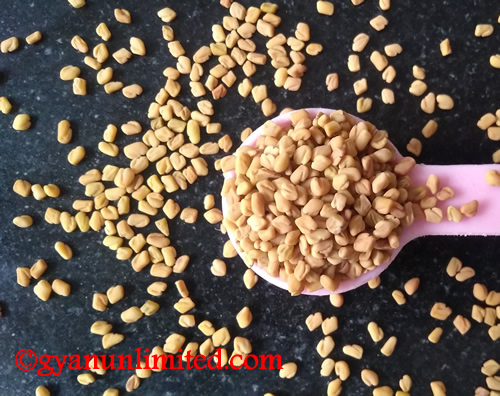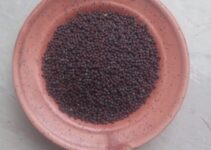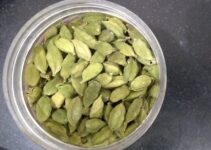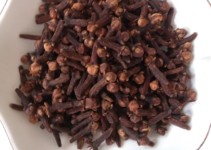What is fenugreek?
Fenugreek (Trigonella foenum-graecum) is an annual plant that comes under the Fabaceae family and is cultivated worldwide. Its seeds and leaves have many traditional health benefits and medicinal uses. The leaves and roots are commonly used in dishes and cuisines. Its origins smell and taste like maple syrup. The leaves are used as a vegetable in the Indian sub-continent. It is also associated with some side effects.

10 impressive health benefits of fenugreek
- Nutritional facts: One tablespoon of fenugreek seeds contains nutrients such as energy (35cals), Fiber: 3gm, Protein: 3 gm, Carbs: 6gm, Fat: 1gm, Iron: 20% of the Daily Value (DV), Manganese: 7% of DV, and Magnesium: 5% of DV.
- Diabetes type 1 and 2: Fenugreek has been used for a long time as an alternative therapy to reduce the impact of sugar levels in the body. In a study conducted on the seeds, it has been shown that taking fenugreek both at lunch and dinner time helps to reduce the level of sugar in the blood.
- Breastfeeding mother: Mothers who are experiencing insufficient milk secretion, may take fenugreek seeds as research has confirmed that it might be a safe passage in comparison to modern medicine. Besides increasing breast milk production, it is also good for the baby’s weight.
- Boost testosterone levels: In recent research, it has been shown that eating fenugreek supplements helps to increase testosterone levels in the body. Thus, if you desire more sperm count, you should take it regularly.
- Reduces cholesterol level: The use of seeds under the guidance of a physician may help to reduce the cholesterol and triglyceride levels in the body.
- Heartburn: It’s a natural antacid. The use of it helps to reduce the symptoms of heartburn.
- Anti-inflammatory: A study conducted on rats and mice has shown that taking fenugreek reduces inflammation. It helps to reduce the inflammation of boils, bronchitis, tuberculosis, chronic coughs, mouth ulcers, and cancer
- Weight loss: It has been observed that fenugreek suppresses appetite and gives the feeling of fullness, which reduces the chances of overeating, thereby helpful in weight loss.
- Pain relief: A phytochemical called alkaloids found in fenugreek, which blocks sensory receptors that allow the brain to perceive pain.
- Reduces menstrual discomfort: It is good to relieve symptoms of menstrual pain. A study published in the Journal of Reproduction & Infertility it has been found that fenugreek powder is helpful to ease during menstruation and menopause.
Fenugreek medicinal uses
- Gastric problems: It is helpful for digestive and gastric issues such as gastritis, stomach inflammation, loss of appetite, and stomach disorders. In such a case, it should be taken orally.
- Hardening of arteries: Using fenugreek helps overcome atherosclerosis and reduce high blood pressure and cholesterol.
- Diabetes: Drinking water in the morning is beneficial for diabetic patients.
- Erectile dysfunction: It is also being used to treat erectile dysfunction and male and female-related sexual problems.
- Painkiller: The warmly wrapped fenugreek, when applied, is helpful to treat muscle pain, toe pain, wound, and leg ulcers.
- Menopause & menstruation
- Obesity
- Vitamin deficiency diseases
- Sore throat: Using it helps to clear the mucous thus beneficial in sore throat, cough, and cold.
- Kidney stone: It has been found that using it helps to reduce the amount of calcification of the kidney and also reduces the probability of kidney stones.
- Constipation relieves: Because of adequate fibre content, it helps to treat constipation and indigestion.
- Anti-cancer: The seeds contain anti-carcinogenic properties, especially in the case of breast and colon cancer.
Fenugreek kitchen uses
- Dishes and cuisines: Fenugreek (Trigonella foenum-graecum) is used as dried or fresh leaves, spice (seeds), and vegetables (mint leaves). It is widely used in various cuisines of Turkey, Iran, Egypt, Yemen, and Georgia.
- Pickles: It is used in the preparation of pickles, vegetable dishes, panch phoron, and in the making of sambar.
- Aloo methi: Its leaves are used with potatoes to make “aloo methi”.
- Salads: Salads are made from sprouted seeds and fenugreek greens.
- Soaps and cosmetics: Its extract helps make soaps and cosmetics.
Fenugreek side effects
- It shouldn’t be used during pregnancy as it may cause harm to the baby.
- Fenugreek may lead to uterine contraction, so it is unsafe for hormone-sensitive women.
- In 2011, in Germany and France, the outbreak of E. coli was credited to this seed.
- Breastfeeding mothers should take it after the consultation of a physician as an excess amount of it is not suitable for the health of newborn babies.
- Side effects can also be seen as diarrhoea, headache, a maple syrup odour in urine, nasal congestion, coughing, wheezing, and allergic reactions in hypersensitive people.
Different name of fenugreek
This medicinal plant is also known as Alholva, Bird’s Foot, Bockshornsame, Chandrika, Fenogreco, Greek Clover, Greek Hay, Hu Lu Ba, Medhika, Methi, Trigonella, and Woo Lu Bar.
How many fenugreek seeds should one take?
Using fenugreek seeds differ from condition to condition. If you are taking it for gastric purposes, it is suggested to put One tsp of it into one cup of water. Keep it throughout the night and use its water in the morning. If a mother requires lactation, 5500 milligrams are recommended every day. In other cases, the direction of a doctor or dietitian may be taken.






